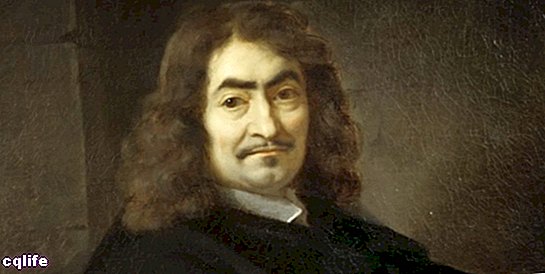- What is the truth?
- The truth in philosophy
- Theories about truth
- Objective and subjective truth
- Absolute and relative truth
- Truth and lies
- Examples of truths
We explain what truth is and its different meanings according to philosophers. Also, the theories that exist about the truth and examples.

What is the truth?
Truth is understood as the concordance that exists between what is said, thought and believed, and what is real (the truth, which cannot be doubted). At first glance this definition does not seem to carry largeproblems for thelife everyday life, but it runs into certain limitations when analyzed in a deeper way.
The word truth derives from Latinveritas, and its concept is one of the great philosophical problems, the main weapon of thereligions and a key piece in anyspeech politician.
See also:Sincerity
The truth in philosophy
The concept of truth was and is undoubtedly one of the great themes of the philosophy which was the subject of study by great thinkers such as Plato and René Descartes.
For Plato, the world was an imperfect reflection of a supersensible world: "the world of ideas", in which truth was an ideal to be achieved along with beauty and good. For this, the soul of individuals (which does not belong to this world, but to that of ideas) had to "remember" what it was at another moment in its life.existence.
In the seventeenth century, the French thinker René Descartes broke with thetradition western by introducing the “hyperbolic doubt”: using doubt asmethod to reach the truth. After some reflections, he reached the argument of the code,"Cogito ergo sum", What does it mean"I think, then I exist".
The only indisputable truth for Descartes was that an individual existed, regardless of whether he dreamed or not, whether he was deceived or not, since all this required as a basis someone who dreams or is deceived.
During the 18th and 19th centuries, philosophers of the idealism German put forward some considerations of the concept of truth. For Immanuel Kant, the truth was the adequacy of knowledge with the object; on the other hand, Friedrich Hegel considered the absolute as true.
Theories about truth

There are certain theories (developed by different thinkers throughout the history) that determine criteria to be taken into account to distinguish what is true from what is not.
- Correspondent theory of truth. Current thought which is based on the criterion of adequacy and maintains that a postulate is true when there is a correspondence between that statement and the real. This idea really comes from the ancient Greeks.
- Truth as evidence. Current of thought that maintains that a postulate is true when it is presented before the intellect in a clear and evident way. René Descartes was one of the main precursors of this idea.
- Coherent theory of truth. Current of thought that is based on the criterion of coherence and maintains that a postulate is true when it does not contradict another that is part of the same system of truths and beliefs. The thinkers rationalists were defenders of this theory.
- Consensus theory. Current of thought that is based on the criterion of consensus and maintains that a postulate is true when it is accepted by all the members of a community.
Objective and subjective truth
A truth is considered objective when it does not depend on the experiences, beliefs Y observations of each individual in particular but exists regardless of whether it is known or accepted. For example, him scientific knowledge.
A truth is considered subjective when it bases its foundation and existence on the individual who formulates it. Subjectivism is the current that maintains that all truths are subjective so they are based on the experience and way of knowing of each subject. For example: the opinions and feelings that an individual experiences are considered subjective truths.
Absolute and relative truth
Absolute truth is considered to be any belief, experience or postulate that is considered true regardless of the historical context or the culture to analyze it. The label of absolutes is usually attributed to ideas that refer to God and human nature.
On the other hand, those ideas that are considered true according to the point of view of an individual or a culture are relative. Relativism is the doctrine which maintains that no idea has universal validity, but varies according to the context in which it is framed.
Truth and lies
The lie is the erroneous postulate that an individual or group makes in order to deceive or achieve some advantage. This concept is closely linked to the idea of truth, because it is through the lie that the total or partial truth about some matter is hidden.
One of the main means of transmitting a lie is words: an individual uses the language to communicate wrong information to another.
There are different types of lies that vary according to the degree of importance or consequences that may come from the postulate. The lie used to the detriment of a third party is condemned in all the ethical and moral canons that govern societies, although sometimes individuals resort to lies to avoid a greater evil.
Examples of lies are slander, fallacy, defamation, and deception.
Examples of truths
Objective truth
- There is a vaccine that prevents tuberculosis in the vast majority of cases.
Subjective truth
- My house is the most beautiful in the neighborhood.
Absolute truth
- All human beings are born and die.
Relative truth
- The human development it's constant.
